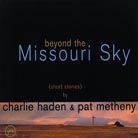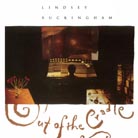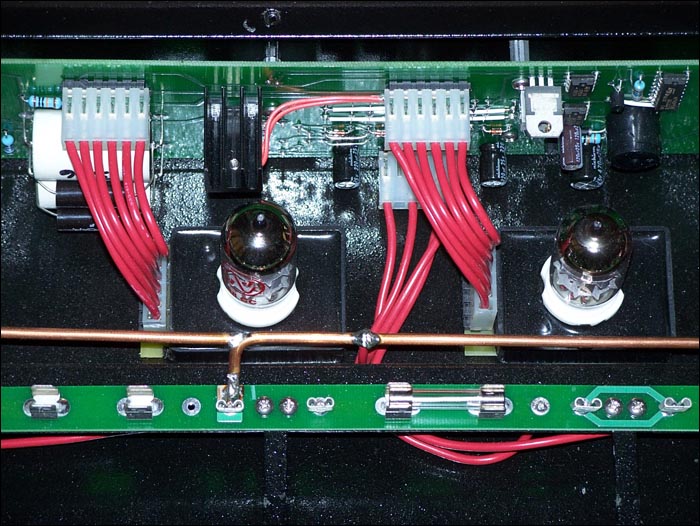|
This review page is supported in part by the sponsors whose ad banners are displayed below
|
|||||||||||||||
 |
|||||||||||||||
| Sorry? Understood! As any certifiable audio idiot knows, there are times when the boxes and cables and tubes and experiments get to the point where even formerly appreciative significant others are driven to their wits' end. Yes, even my lovely bride has gone so far as to comment that my own mother would disown me if she saw the disarray. It's probably true. While reviewers are likely worse than the norm, I suspect they fall short of taking the cake. Having visited the homes/laboratories of a few designers myself, I have no trouble imagining the potential for a far-from-obsequiousness photo opportunity. Speaking of my mother... Many many years ago, she said to me, probably in a moment of exasperation, "You were born cranky." It's true. She did. I was. Obviously it's a temperament not easily shaken. While I am an early riser, I do not wake with a lively disposition and loathe being around those who do. Cheerful and chatty do not fit into my early morning agenda but, more frequently than not, they are beginning to find a place in my life at some point in any given day. Some days. I swear. I need time and some coaxing to get going. Black coffee, a muted sunrise, a brisk early morning ride across the shadowy slopes on my bicycle. Is it any wonder that my favorite systems, when fully tweaked, lean towards the deeply hued? I crave dark chocolate and red wine, too. Did I mention brunettes? So there you have it. My disclaimer. Right up front. I meant what I said about the slopes and the sun and the shade. There's no getting around the fact the Dodd has a sunny (and no, that doesn't mean bright, my friends - read on) disposition. In fact, there is much good to be said about that. From one perspective, the Dodd is absent any inherent coloration. Taken from another perspective, just as one might Badger Mountain, the sunny side is simply not as subtly hued (or tonally robust). |
|||||||||||||||
 |
|||||||||||||||
The music speaks What is it then? Well, for starters, suave, dynamic and clear. Three words that in my experience one will rarely find strung together to describe even above average electronic components. The Dodd is also genuinely detailed, meaning not just for the sake of detail but to the ends of delivering newfound musical lines and expanded instrumental subtext. With brilliant transient attack, you can expect to be (usually pleasantly) startled even as you anticipate the beginning of familiar tracks. And once into the groove, you'll be rewarded with the level of transparency one would expect to come from the absence of a power cord. |
|||||||||||||||
 |
When Pat Metheny backs Charlie Hayden on Beyond the Missouri Sky, I hear deeply into his quiet but distinguished guitar work. Yet he doesn't invade Hayden's lead, he just makes the arrangement fuller and more remarkable. Some transients from his guitar seemed to really pop but always did so without glare. They also frequently seemed more potent (but not too forceful, as this applies to delicate passages as well) than I am accustomed to hearing from this recording. While this punctuation did not obscure the proper overall dynamic range of the performance, it was conspicuous. |
||||||||||||||
|
| |||||||||||||||
Speaking of guitarists "... Out of the Cradle is a sumptuously recorded labor of love that's as thick with guitars as it is with intricate vocal harmonies. "Surrender the Rain," billowing with voices, suggests an arty take on the Beach Boys, while "Soul Drifter" rocks to a seductive beat that's swaddled with guitars. The entire album is a treat for guitar freaks, as [Lindsey] Buckingham includes instrumental interludes and lavishes as much attention on the sound of his guitars as most producers spend on the entire band." - John Milward |
|||||||||||||||
 |
|||||||||||||||
| Allow me to be epigrammatic. The Dodd really lets this album shine. Each reflects the other with respect to character, message and delivery. Billowing and seductive without grunge or haze. Effortless bass and lower mids. The sonic subtleties within the complex signal were testament to venerable resolution. Really. |
|||||||||||||||
 |
|||||||||||||||
Another form of stringed instrument manifests on Le Pas Due Chat Noir. This would be the Tunisian oud (Middle-Eastern lute). Le Pas Due Chat Noir (for oud, accordion & piano) was composed by Anouar Brahem who is accompanied by Francois Couturier on piano and Jean-Louis Matinier on accordion. |
|||||||||||||||
| This, for me, is an album that's difficult to describe. Suggesting you think about a sprinkling of tango across a vast and sparse sonic landscape is about the best I can manage at the moment. But I do love this album and the reason I mention it at all is that repetitive listening highlighted two important markers for me: 1) The Dodd is a fitting tool for low-level late-night sessions, meaning it is decidedly not dull at the extremes and delivers delicacy and above average instrumental layering. 2) When you pump up the gain, it remains free of audible distortions - the ones that are quite quick to drive me out of the room even at what I consider modest volumes. |
 |
||||||||||||||
| Previously I talked about sun and shade. Listening to this album through the Dodd brought to mind two more words that facilitated my understanding of this preamp in my system: Ambience and ambiance. If we can agree, for the moment, that 1) ambience is the aurally perceived impression of an acoustical space such as the performing hall in which the recording was made and that 2) ambiance is the feeling or mood evoked by an environment, then I can continue. The Dodd does both but more of one than the other. I found it more articulate than expressive. So when you consider the ambience/ambiance continuum, it tends to highlight the space and draw me in more academically than emotionally. Attack and decay cues for example are quite coherent and communicative but don't induce the same intensity of mood, feeling or physical presence that I experience with my current reference. But hey, that's just me. |
|||||||||||||||
 |
|||||||||||||||
|
This image opens to 1200 x 900 at 309KB in a new window
|
|||||||||||||||
| More piano Lágrimas Negras: "... pairs one of the greatest flamenco singers of today, cantaor Diego El Cigala, with one of Cuba's finest Afro-Cuban pianists, Bebo Valdes. With Valdes (father of the great Chucho Valdes) born in 1918, there's a 40-year age difference between the pianist and the singer, but they do a fine job crossing generations and oceans to discover the commonalities between Caribbean and the Iberian music, coming up with a romantic marriage of the two cultures using rumbas, guajira, sons and boleros. All the songs are classics out of the Latin music tradition, using just a handful of players in support. Valdes's fingers are delicate and prone to dramatic flourishes; Cigala's voice is pure flamenco in its hoarse intonation, cadence and emotional outpourings. The two masters make the union work by focusing on the drama of the love songs -- "Veinte Años," "Inolvidable" and the title track are just three amazing examples -- as fuel for some of the most exquisitely passionate music to come out in ages." -Tad Hendrickson When you're through here, I encourage you to not miss Srajan's fittingly ecstatic take on this great album. |
|||||||||||||||
| With the Dodd, this album borders on spookily real. My only quibble is that as the scenes emerge from track to track, the milieu is not as dirty, gritty and rough as I imagine it should be especially given the gravelly intonation of Cigala. Is there such a thing as too pure, too innocent for the message? Oddly, in that way, the Dodd is beguiling. And to be clear (and fair), it is also insistent; just not as raw as I have heard elsewhere. Sure, it will growl and it will purr. But it won't stick its tongue in your ear. I'm just sayin'. |
|||||||||||||||
 |
|||||||||||||||
| The Dodd is neither dry nor lean in the over-damped sense. It does offer lesser heft (weight/solidity) and warmth than I favor. Your mileage may vary. In fact, it very likely will if | |||||||||||||||
| you set forth to roll some tubes. Happily, it only requires two. I'm told they'll last as well. Twice as long as you'd expect even. Honestly. Before closing the ledger: For my intents and purposes, the Dodd is texture-less. Expect liquidity galore, something difficult to secure at this price point especially if you also want detail retrieval and dynamics to come along for the ride. I detected no instrumental or vocal smearing. Tonal balance didn't waver to my ears and thanks to an exceptionally linear and seamless (without discontinuity throughout the audible range) response, it conveys music that is very present. |
|||||||||||||||
 |
|||||||||||||||
And so? Well, other than being an excellent value when one considers price and performance, there's not much more to say. Would you feel better if I told you I like it better than a couple of $8,000 preamps I've spent time with? Okay, I do. But here's what I said: Excellent value. I didn't say fair, promising, admirable or above average. Okay? Okay, maybe a little more Getting back to where I started: Based on my experience, in its stock configuration the Dodd has a sunny disposition and that's not for me. Period. Whether or not you like this temperament -- especially with respect to overall tone -- is highly personal but that takes nothing away from the basic rightness of this design. That's right. My favorite systems, when fully tweaked, lean towards the yin: smooth, tonally shady and well hued without being dark/dim or giving up nuance. I find the Dodd works best (for me) when paired with gear that adds some harmonic richness and the right touch of weight in the mid-to-upper bass and lower mids (without slowing things down). My DIY Altec 604s can't do this with the Dodd. They let in too much light, making for a leaner (though undeniably smooth) presentation that is not my ideal. The Zu Audio Druids however can and do add this touch of weight and make for a more grounded pairing, assuming the rest of the chain does not lean too far to the yang. Mine doesn't. In our closing conversation, Mr. Liedermann assured me that the Dodd is very responsive to such ministrations and I have no reason to doubt him. In the least. Many preamps can be deftly flavored with appropriate tube rolling. I've heard fundamental changes in other gear simply changing power rectifier tubes. Not signal tubes. Take the Eastern Electric MiniMax or Wright Sound 2A3 monos for example. Go figure. Whether or not you choose to flavor the stew that Gary Dodd has cooked up will depend on your tastes, room and ancillary gear. Some of you may go that route. But based on what I've heard from the stock version over the last 3 months, it's easy to predict that many of you will be able to conclude your search for the right preamp right here. Right now. |
|||||||||||||||
|
| |||||||||||||||
Quality of packing: Excellent. Reusability of packing: No problems. Quality of owner's manual: Adequate. Completeness of delivery: Perfect. Website comments: Adequate. Warranty: I returned the unit before copying this page of the owner's manual so I had to e-mail Gary for an answer. He wrote back, "There is a standard 3-year warranty that is in the box with the owner's manual. I usually tell everyone that as long as you (the original owner) own it, I will take care of everything except the tubes and the batteries." Human interactions: Professional, helpful and friendly. Pricing: High performance to price ratio. Final comments & suggestions: None. Manufacturer's reply Thank you for the wonderful review, Stephaen! I would like to make a comment if I may regarding tube rolling with the preamp. I would like everyone to know that the preamp was reviewed with the standard JJ6922s that are shipped with each preamp. I felt it was important for everyone to know just how good it was right out of the box as shipped. However, this preamp is very receptive to tube rolling. It allows each individual owner, if he so desires, to change the sound of the preamp by using different tubes. This preamp will accept any 6DJ8, 6922, 7308 and their variants except for the Russian 6N1P; that has a much greater filament current and the preamp cannot deliver it. This is a very wide range of brands and types of rollable tubes, all of which will sound different. It is easy, though sometimes not cheap, to have this preamp perform as you wish in your system. Some of these tubes are quite expensive, but then you get two lives from one set of tubes; pretty much a lifetime! Gary |
|||||||||||||||
 |
|||||||||||||||
 |
|||||||||||||||
 |
|||||||||||||||